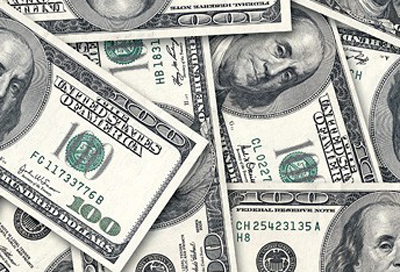Tuesday, 08 September 2015 20:05
 NEW YORK: The dollar was mixed on Tuesday as rising stock markets and positive German economic data gave global investors reasons to throttle down the risk aversion tactics that recently boosted the euro and yen.
NEW YORK: The dollar was mixed on Tuesday as rising stock markets and positive German economic data gave global investors reasons to throttle down the risk aversion tactics that recently boosted the euro and yen.
The dollar, which traders said was unlikely to move much until Feb. 17, when US Federal Reserve policymakers may announce an interest rate increase, gained against the yen and fell against sterling and the euro.
US stocks were about 1.5 percent higher after weak economic data out of China bolstered hopes of more stimulus measures from the Chinese government.
Chinese stocks ended nearly 3 percent higher, and European stocks were up 1.5 percent.
German exports and imports hit record highs in value terms in July, suggesting foreign appetite for goods from Europe’s largest economy remained robust despite the slowdown in China, while domestic demand also was holding up well.
Positive data from Europe’s biggest economy would traditionally boost the euro, but the currency has in the past jittery months benefited by acting as something of a safe haven, as investors unwound euro-funded positions in riskier but higher-yielding currencies and bought back the single currency.
With stocks up, the euro fell victim to a renewed appetite for risk that also hurt the yen.
The euro recovered from early losses and was last up 0.1 percent against the dollar at $ 1.1184, while the yen shed 0.6 percent against the dollar to trade at 120 yen. The euro was down 0.5 percent against sterling.
“The market is trading more risk-on across the board,” said BNP Paribas FX strategist Sam Lynton-Brown in London. The dollar index traded in a tight range and was last off 0.20 percent.
“Volumes are very light, and we are not seeing much conviction either way (on the dollar’s direction),” said Douglas Borthwick, managing director at Chapdelaine Foreign Exchange in New York. “We are really seeing sideways trading.”
Investors are focused on next week’s Fed policy meeting. Many had expected the Fed would announce the first rate hike in almost a decade at this month’s meeting, but those expectations have faded as worries over the health of the global economy have grown.
























